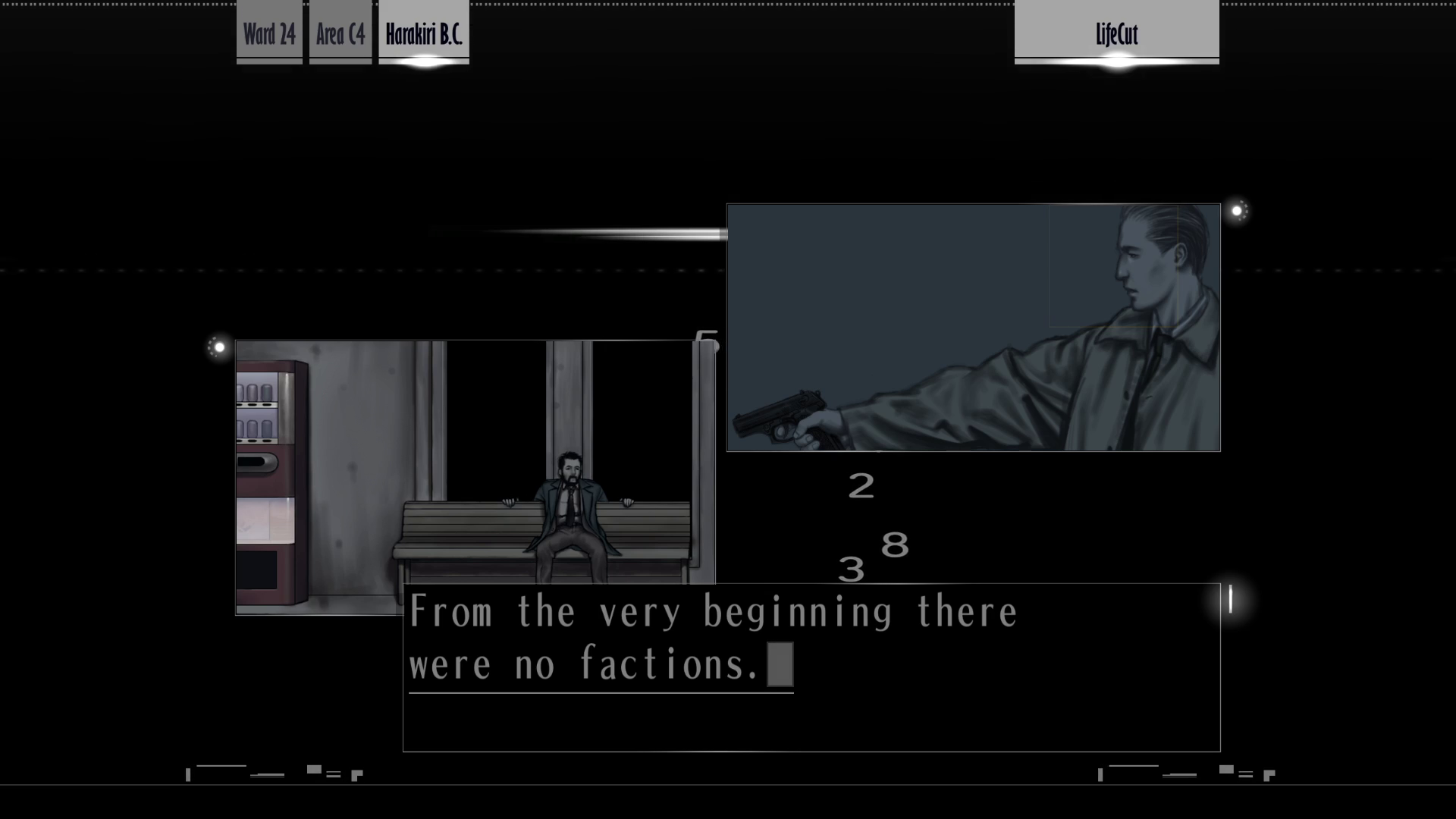The neoliberal Maspro
Although Format Kamui is identified with the “conservative” FSO faction, the TRO/CCO and their grouchy chairman Kai Daizaburo never demonstrate left-wing policies or ideals. Mayor Hachisuka Kaoru, one of the two “evil” characters, is the big bad. The “truth” would appear to confirm that The Silver Case depicts a more leftist position as evil: Hachisuka is a former “lieutenant” in a vaguely progressive activist group and comes to power in 1979 without backing from major political organizations. His platform is “revolutionizing” the 24 Wards.

But the “facts” in the Uehara narrative reveal that the man known as Hachisuka Kaoru is not a radical. He is actually Hachisuka Uminosuke, the “pure evil” man who killed Kaoru to impersonate him using the youth he stole from Kamui in the Silver Case. Uminosuke usurps and wipes out genuine activism of the young, what his son Kaoru was involved with, to replace it with his ELBOW oligarchy of old men and literally hand over his grandchildren to the Maspros. Like Format Kamui is the recuperation of Kamui by power, Uminosuke is the recuperation of previous political radicalism by the establishment.
It also is not entirely clear what the political alignment of any of the parties might be. The FSO is identified as “conservative” in the political sense (though confusingly they are also environmental conservationists), while the TRO and CCO are respectively the “tech faction” and “civic faction,” which are not political labels. Given that (in this alternate history) Kanto has a market-based socialist economy prior to the TRO/CCO coming to power, it is possible that the conservative party are socialists. Note also that their equivalent in the killer7 timeline, the minority opposition party sending assassins after the ruling UN Party is called the Liberal Party, rather than the “conservative faction.” Though this does not, of course, mean the Liberal Party should be understood as left in character. (To remind my American readers, in most countries that have one, the “liberal” party is conservative.)
The FSO remains sinister regardless of political affiliation. As shown in “LifeCut,” the FSO and TRO/CCO are functionally interchangeable. All the syndicates participate in public oppression, the suppression and manipulation of “criminal power” or Kamui/Ayame, and the murder of Uehara. The TRO/CCO manages the Kamui Maspro, and the FSO manages the Ayame Maspro not in defiance of but based on data from the previous project. Moreover, the TRO/CCO and FSO are literally the same organization: “From the very beginning there were no factions. It’s all part of one big group.”

The various oligarchs and politicians and their minions do not realize their battles and trauma are all under the power of an international secret society, the diabolical ELBOW. “What acronym could possibly capture the absurdly vast machinations at play, so ubiquitous as to be meaningless?” writes Piechota. “ELBOW it may as well be” (4). The narrative does not align with any of the political organizations of old men but against all of them: “It’s not about goals. It’s a natural instinct. […] A catfight, if you will, a real shit show.”